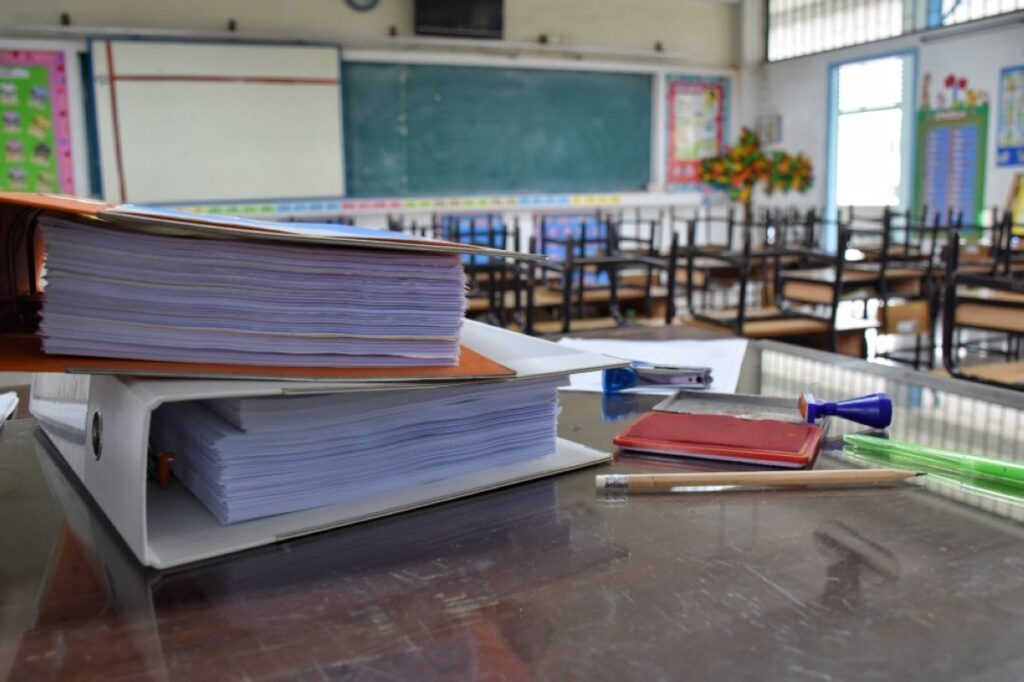KUWAIT: While most parents send their children to public schools, many would argue that a majority of foreign private schools offer a better experience. This debate often stems from concerns about the performance of public schools, whose standards remain disproportionate to the education ministry’s spending—over KD2.7 billion in 2024–2025.
A parent, Sarah Bader, said the reputation of public schools has discouraged her from enrolling her son in any of them. “I heard so many negative things about it especially, regarding the curriculum.” She said the superior learning environment and extracurricular activities at private schools has made them her top choice.
Academic and education specialist Mohammed Alsaddani has raised sharp concerns about the state of education in Kuwait’s public schools, pointing to administrative inefficiency, uneven standards across different schools, and outdated teaching methods as central problems.
Alsaddani emphasized that the most important problem facing public schools in Kuwait is administrative. He described the issue as stemming from “an inflated administrative structure”, where there’s lack of clarity on the hierarchical relationship between the school administration, educational district and the ministry.

Mohammed Alsaddani
As a result, issues that could be addressed at the level of the school end up going all the way to the minister. “I believe this hinders much of (the education system’s) work, as it is a huge institution that must make its own decisions.” Alsaddani said the public-school environment encourages laziness.
“The lack of interest, and slowness in dealing with those who fail to perform, as well as the lack of programs to reward those who excel, create a kind of apathy and lack of enthusiasm for developing educational performance in schools,” he said.
The inconsistent standards across Kuwait’s public schools are another result of these administrative weaknesses. Alsaddani said the differences between schools mainly lie in the environment and the extracurricular activities offered rather than curriculum.
“If the school administration is good and persistent, a public school could reach the level of a private one,” he said, pointing to examples of schools with clean buildings, tidy and clean facilities, colorful plants, and hard-working cooperative staff.
“All of this is through the personal motivation of the school administrators or the teachers themselves, who love and care for the place and therefore give a part of themselves for it.”
Money vs quality
Despite these issues, many parents continue to rely on public schools “because it’s free education,” Alsaddani said. “Families with three or four children find it much cheaper to send their children to public schools because, in the end, if they get excellent grades, they can go on a scholarship abroad,” he said.
Alsaddani is not surprised that parents, like Bader, prefer teaching their children at private schools, given that they provide better and more disciplined educational environments. Parents and students at these schools often share the same values and expectations, creating a culture of trust and discipline that strengthens both academic and community life.
From an educational perspective, Alsaddani noted that private schools stand out for their language instruction. “Foreign schools are characterized by their discipline in teaching English and the proficiency of their students in English as native speakers,” he said.
The quality of teaching in general is another important factor. “What distinguishes private schools from government schools is that they teach practical skills and provide a rich educational content that eliminates the need for any preparatory courses when they enroll in any university,” he said.
Overhauling education
If Kuwait were to tackle issues plaguing its public education issues, Alsaddani said the ministry should prioritize teaching students skills they need to succeed in life.
“The ministry should focus on the student and the skills that he or she must acquire in life in order to build a system that helps train people for life,” he said. Improving the system is critical, especially that all of society’s problems, from hygiene to unemployment to the economy, are linked to education, he explained. “If schools are fixed, society is fixed, and the country is fixed. The idea that we are still stuck in the same cycle of old curricula and old teaching methods is something that must be completely rejected, and the ministry must continue to work on this in its future steps.”
Alsaddani expressed a critical view of the traditional concept of schooling, calling it “an outdated and invalid concept that should not continue.” Instead, he argued for unrestricted education that teaches the basics, with flexible curricula that give students space to explore subjects useful to their lives.
Bader, meanwhile, emphasized the need to adapt curricula to children’s short attention spans. With modern AI tools like ChatGPT, she said, students can access knowledge on their own. Schools, therefore, should focus on life skills—teaching communication, survival tools, and above all, critical thinking—rather than rote memorization.
The Ministry of Education recently revised curricula for grades one through nine. On this, Alsaddani said: “We evaluate the success of these curricula when the final product and output of our schools are different. But if we change the curricula and the product is the same…the students are the same, I think there is a problem.”
He further argued that confining students within rigid systems “will not create modern or developed individuals.” Instead, he pointed to the growing global popularity of free education, which allows students to complete state-mandated courses while also pursuing knowledge beyond the classroom.

